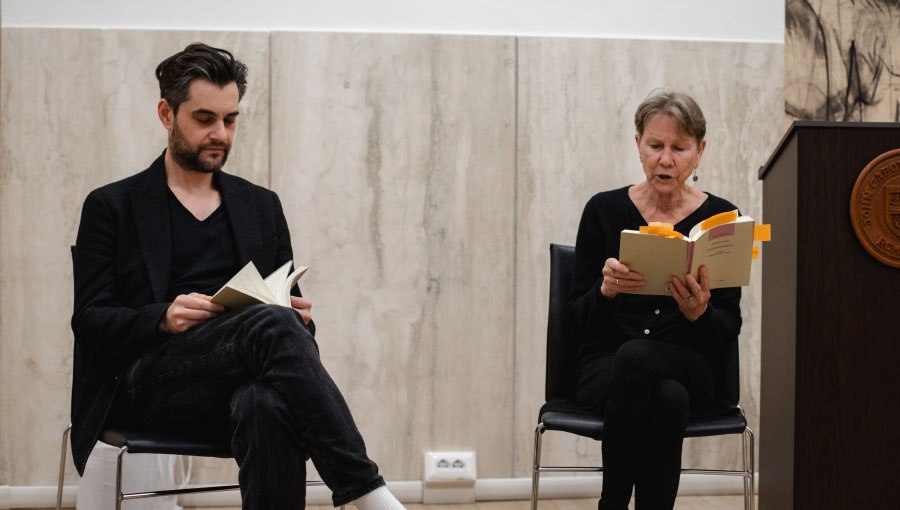JCU Hosts Book Presentation: Illuminosa Tarantina by Roberto Delle Cese
On November 28, 2022, JCU’s Department of Modern Languages and Literature hosted the presentation of the book Illuminosa Tarantina. Il romanzo di un femminiello napoletano (Effigi, Roma: 2022) by Roberto Delle Cese.

Tarantina’s mural
With humor and honesty, the book narrates the life stories of Carmelo Cosma, aka La Tarantina, one of Italy’s most famous femminielli – or transgender persons. The word femminiello means “little female-male” in Neapolitan dialect. Born in 1936 in Avetrana, Puglia, Tarantina is the oldest femminiello living in Italy. Born male but identifying as a woman from a very early age, she was kicked out of her home and at age 13 she moved to Naples. It was there that she was referred to for the first time as a femminiello, which was not considered a derogatory term. During the fifties and sixties, the years of “La Dolce Vita,” she lived in Rome, where she met many artists and intellectuals, such as Federico Fellini, Pier Paolo Pasolini, and author Goffredo Parise.
The event included: an iconographical presentation on femminielli and other gender-non-conforming individuals in Italian art history by Ricardo De Mambro Santos (Professor of Art History, Cinema Studies, and Global Cultural Studies at Willamette University), a musical session with guitar played by Valerio Rossi, and a discussion (in Italian with English Translation) with Tarantina, Delle Cese, and De Mambro Santos.
Although Tarantina has suffered all imaginable – and unimaginable – forms of discrimination and humiliations over the years, her stories show also the humorous and ironic sides of all those dramatic events. She shared stories of her experience as a sex worker, which allowed her to be accepted and even respected for who she was. She explained how Goffredo Parise supported her and changed her life.
After twelve years of living in Rome, where she was systematically persecuted, Tarantina moved back to the Spanish quarter of Naples, where she is viewed as a princess by the local community, explained De Mambro Santos. She has even been painted as a large mural that was sponsored by city hall.
Said Professor Capoferri, “Tarantina’s biography is not only the story of an unconventional life and an extraordinary person, but it is the story of everyone’s deepest desire to be accepted, appreciated, and possibly loved for who they are.”
“I felt very fortunate to be part of this event at the University, to learn about Tarantina and how she managed to transition from a place of rejection and pain to a place of acceptance and inspiration,” commented student Mary Curran.





